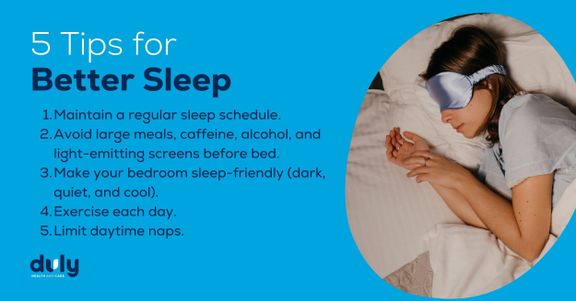If you’ve ever been called clumsy in your life, you’re not alone. Whether you drop things, trip, or bump into furniture, these moments are commonplace for many people.
Mild clumsiness is not usually a cause for concern, though it might encourage you to pay more attention to what you’re doing. But sometimes, clumsiness can signal a health problem.
Here are 7 health conditions that can cause clumsiness.
1. Sleep Deprivation
Sleep is important for many aspects of your well-being, including your brain health, heart health, metabolism, immune system, and thinking and memory.
It also plays a role in your balance and coordination. While just one night of sleep deprivation can impact your stability, continued lack of sleep can cause even further problems.
Getting a good night’s sleep might involve changing some behaviors, but it may also warrant a visit to a sleep medicine specialist to check for a sleep disorder.

Also read “Can’t Fall Asleep? It May Be Your Sleep Environment”
2. Anxiety
Affecting about one-third of Americans at one point in their lives, anxiety is a common health condition. Among other symptoms, like feeling nervous and restless, anxiety can also cause clumsiness.
Anxiety impacts your nervous system, which can cause your hands to shake or alter the way you view your surroundings. This can cause you to bump into things or drop things — both common aspects of clumsiness.
If you think your clumsiness might be related to your emotional wellness, make an appointment with a Duly Behavioral Medicine specialist to get the support you need.
3. Vision Problems, Like Cataracts and Glaucoma
Vision is the primary sense you use to make your way through the world. But if your eyes aren’t working as they should, you might find yourself dealing with some clumsiness.
If your vision is deteriorating (such as due to conditions like age-related macular degeneration, cataracts, and glaucoma), you may have trouble doing activities like walking or going up and down stairs without falling.
An ophthalmologist can diagnose and treat vision problems, helping you to see clearly and move safely within your surroundings.
4. Stroke
Strokes — which occur every 40 seconds in the US — are when the blood supply is blocked to the brain or a blood vessel in the brain bursts. Early action is critical in reducing the damage done by strokes. This means knowing their signs and symptoms, including sudden clumsiness.
Strokes can cause paralysis and muscle weakness, leading to clumsiness. Other signs of a stroke include sudden:
- Weakness or numbness in the face, leg, or arm (especially on one side of the body)
- Confusion, difficulty speaking, or trouble understanding others
- Vision problems
- Difficulty walking or dizziness
- Severe headache
If you suspect you or someone you know is having a stroke, call 911 right away.
5. Amyotrophic Lateral Sclerosis
Formerly known as Lou Gehrig’s disease, amyotrophic lateral sclerosis (ALS) is a neurological disorder that impacts the nerves in your brain and spinal cord that are in control of voluntary muscle movement. As these nerve cells begin to die, they have trouble communicating with muscles, leading to weakened muscles and clumsiness.
Clumsiness is often an early sign of ALS, along with muscle twitches, slurred speech, and trouble chewing. Over time, it can develop into a complete paralysis of the body, including breathing.
There is no treatment or cure for ALS. However, a specialized care team can help patients be independent and mobile for as long as possible.
6. Multiple Sclerosis
Also a neurological disorder, multiple sclerosis (MS) is when your immune system attacks healthy cells in the protective barrier that surrounds the brain and spinal cord (called the myelin sheath). This disrupts the nerve signals from your brain to the rest of your body, including your muscles, which can cause clumsiness.
Other early signs of MS include vision problems, muscle spasms, muscle weakness, tingling or numbness in the legs and arms, and fatigue. Over time, this can lead to trouble walking and the need to use an assistive device, like a cane or walker.
While there is no cure for MS, treatment involves easing symptoms and slowing the disease’s progression.
7. Alzheimer’s Disease
People with Alzheimer’s disease face more than just memory loss. They also struggle with spatial relations — or determining how close or far they are from objects and people. This can lead to clumsiness in the form of tripping, spilling, and dropping items.
Other signs of Alzheimer’s disease include difficult planning, confusion with time and place, misplacing items frequently, and changes in mood or personality. If you or your loved one has just one of these symptoms, it’s important to see a healthcare provider to seek early treatment and make a plan for the future.
When to See Your Doctor About Clumsiness
Sometimes clumsiness is just clumsiness — and it’s nothing to be concerned about. But if your clumsiness comes on suddenly, lasts a long period of time, or interrupts your day-to-day life, it’s time to see your healthcare provider.
Your provider can determine the root cause of your coordination issues. If it is typical clumsiness, they can discuss how to decrease your risk of falls and injury, such as by exercising to engage your muscles. It can also be helpful to slow down with your tasks and take in your surroundings before moving forward.
As with any health concern, listen to your body. If you’re worried about your clumsiness, talk to your provider. You know your body best, and they can get you any necessary treatment and support to move with confidence.
Health Topics:








